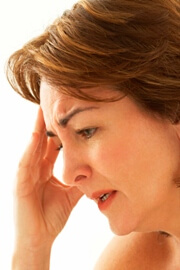
The Surprising Signs of Heart Attacks in Women
February is American Heart Month, dedicated to educating men and women about heart health and promoting a healthy lifestyle. Travel nurses spend a lot of their time educating their patients about the importance of living a healthy lifestyle to prevent heart disease, but it’s just as important to help them recognize the different symptoms of heart attacks in men vs. women.
The American Heart Association website explains: “Even though heart disease is the #1 killer of women in the U.S., women often chalk up the symptoms to less life-threatening conditions like acid reflux, the flu or normal aging.” Too often, women fail to recognize the symptoms of a heart attack until it’s too late.
Men vs. Women: When Feeling Unwell Indicates a Heart Problem
Women often report subtle symptoms up to a month before they actually have a heart attack. These include unusual fatigue, sleep disturbance, shortness of breath, indigestion and anxiety.
For men, the pre-heart attack symptoms include shortness of breath, weakness, unusual fatigue, cold sweat and dizziness.
When faced with these symptoms, men and women should seek help immediately as they might indicate the first signs of a heart attack.
Warning Signs of a Heart Attack in Women
As with men, women might experience chest pain or discomfort in their chest. This manifests as uncomfortable pressure, squeezing, fullness or pain in the center of the chest that can come and go or continue.
According to the American Heart Association and Web MD, the warning signs of an imminent heart attack in women include (but are not limited to) the symptoms listed below; again, women should seek medical attention immediately if they experience any of these:
• Pain or discomfort in one or both arms, the back, neck, jaw or stomach
• Shortness of breath with or without chest discomfort
• Weak pulse
• Other signs such as breaking out in a cold sweat, dizziness, nausea, sweating or lightheadedness
• Back or jaw pain
• Cold and clammy skin, gray pallor or a sudden appearance of illness
Researchers from the University of Rochester School of Nursing in New York studied 41 women and 59 men who'd had heart attacks. Surprisingly, they found that throat discomfort was 12 times more likely to be reported by women and vomiting was 3.9 times more likely to be reported by women than men.
While it’s important for travel nurses to educate their patients about the importance of a healthy lifestyle, it’s just as important for nurses to follow their own advice to lower the risk of heart attacks:
Heart-Healthy Tips
• Regular visits to your health care provider to check blood pressure, cholesterol and glucose levels are essential to heart health. Travel nurses should also keep an eye on their health since long hours and stress can contribute to heart problems.
• A good night’s sleep promotes heart health. Put those cell phones and laptops in another room at night and be sure your bedroom is a dark, cool haven of serenity. Sweet dreams!
• Be happy. A positive attitude reduces stress and mindful meditation is good for the heart.
• Regular exercise. Climb the stars and walk the hallways. Even better, if you can exercise outdoors during your time off, you’ll reap the benefits of healthy doses of Vitamin D.
• Control your weight. Eat a healthy, balanced diet, eat small portions and include lots of colorful fruits and vegetables and lean protein into your diet. Sugar and salty snacks are a no-no, although occasional dark chocolate can be your sweet treat.
• Stop smoking (including vaping) and limit your alcohol intake. Red wine is healthier than liquor, but everything in moderation.
Additional Nursing Resources:
- AMN Passport: Our all-in-one nursing app for booking nursing jobs.
- Nursing Salary & Benefits: AMN Healthcare offers our nurses some amazing salaries and benefits. Find out what's in store for your nursing career today.
- Travel Nurse Licensing: Find out about nursing requirements for all 50 states.
- Exclusive Facilities: AMN Healthcare has relationships with the most sought-after healthcare providers.
- Refer-a-Friend: Make up to $2,000 per referral.



